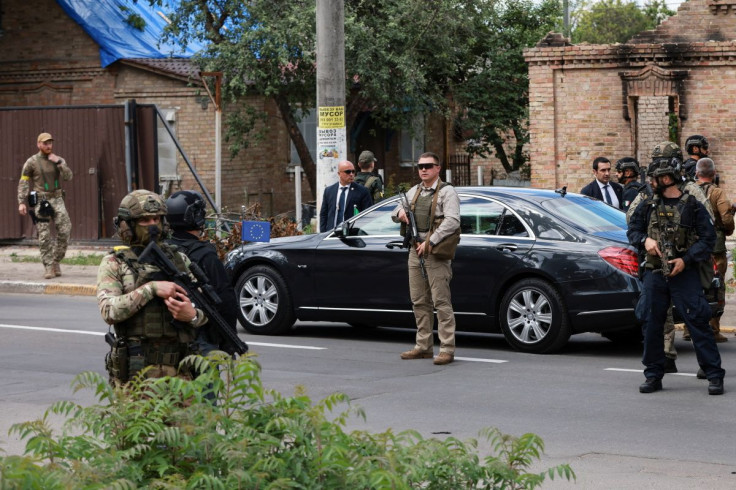Factbox-Ukraine's Road To Becoming European Union Member

The European Union's executive on Friday supported giving formal membership candidate status to Ukraine and made similar recommendations for two other former Soviet states, a major political shift brought about by Russia's invasion.
[L1N2Y404X]
Here are some hurdles Ukraine - as well as Georgia and Moldova - would have to clear to join the EU.
TIMING
While the recommendation marks a strategic eastward shift by the EU in the face of Russia's war in Ukraine, Kyiv would likely take years to become a member of the 27-nation EU, if at all.
Ukraine would be required to carry out economic and political reforms and it is unlikely the bloc would take in a country in a state of war.
At times of peace, it took Poland, Ukraine's neighbour with similar population size and communist history, 10 years from applying for membership in 1994 to actually joining in 2004.
Turkey, on the other hand, got formal candidate status in 1999 but currently has no prospect of joining.
Membership talks stopped as ties between Ankara and the bloc soured, including over President Tayyip Erdogan's crackdown on critics following an attempted 2016 coup, and other examples of what the bloc says is erosion of democracy and the rule of law.
The six Balkan countries' EU membership bids have also been complicated in recent years by issues including migration, organised crime and the hopefuls' mutual disagreements.
PROCESS AND REFORMS
EU leaders will discuss the Commission's membership candidate proposal for Ukraine during a summit in Brussels on June 23-24. They all need to agree for the status to be formally granted.
Once that happens, Kyiv will start negotiations on aligning its laws with those of the EU under 35 so-called "chapters", or thematic areas from financial to justice to climate.
A chapter is closed when the candidate country shows it has already implemented EU laws in that field. All 35 must be closed for accession.
Ukraine would be required to reform its economy and strengthen its democratic institutions, including to fight corruption. It will have to beef up legal protections and track record on everything from human rights to market competition.
POLITICAL WILL
If and when all this is done, the EU and Ukraine will prepare an accession treaty. It must be approved by Ukraine, all EU governments and the European Parliament.
That means the process can always be stalled by politics. Or be sped up by them, as is the case currently with the Commission moving on candidate status, a step that would have been unimaginable just a few months ago.
The Netherlands, France and Germany have been among EU countries opposing bringing in new members in recent years.
But Kyiv now won the crucial backing of Paris and Berlin - the bloc's top powers. Their leaders were joined by those of Italy and Romania in Kyiv on Thursday to declare Ukraine belonged in the "European family".
The new geo-political momentum since Russia invaded Ukraine on Feb.24 marks a leap forward for Kyiv on its path towards EU membership - without determining the final outcome.
The EU's last major enlargement was in 2004 when eight formerly communist eastern countries - including the Baltic States, Poland and Slovenia - joined. Romania and Bulgaria followed in 2007.
Croatia was the last one to join in 2013 but the bloc since lost one when Britain in 2020 became the first ever country to leave.
© Copyright Thomson Reuters 2024. All rights reserved.







